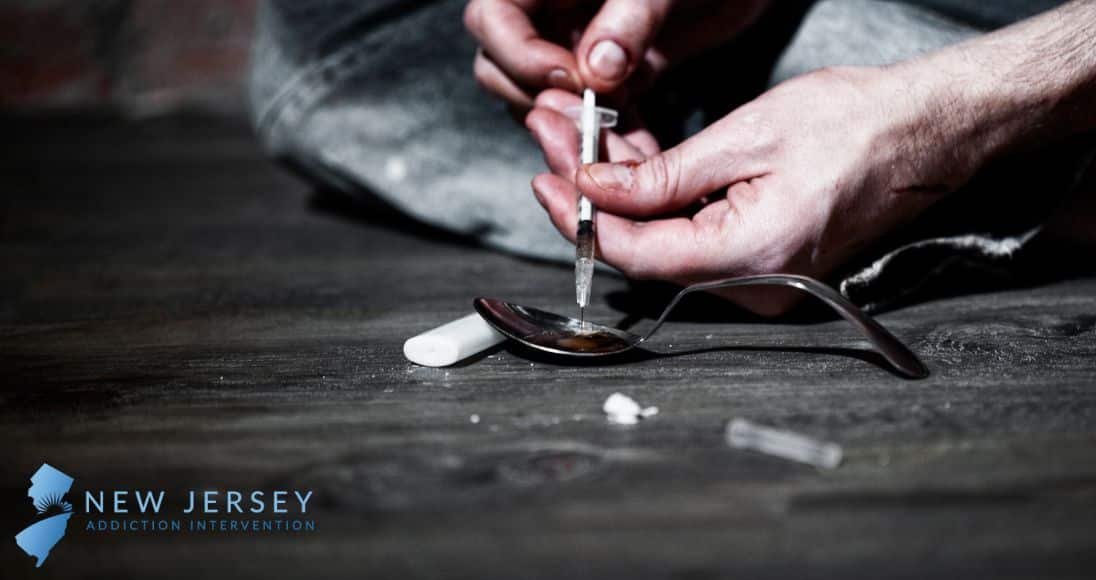Heroin is commonly known as a potent, highly addictive drug. However, some people may not understand exactly how heroin works in the body or its effects. Some may wonder if heroin is a stimulant or another type of drug.
This article will explore what type of drug heroin is, how it works, and the risks of using it. Reach out to the New Jersey Addiction Interventions specialists to learn about our comprehensive substance abuse treatment plans or for guidance during any stage of your recovery.
Is Heroin a Stimulant?
Stimulants are substances that increase activity in the central nervous system (CNS). Stimulant users experience effects like:
- More energy
- Increased alertness
- Faster heart rate
- Increased blood pressure
Heroin is not a stimulant. It is a depressant, meaning it slows activity in the central nervous system. People who use heroin and other depressants may feel sedated, drowsy, and calm.
What is Heroin?
Heroin is an illegal drug derived from morphine, which comes from a specific type of poppy plant. Heroin is most commonly found in a white or brownish powder. Some users snort or smoke the powder, while some heat and inject it. No matter how people ingest heroin, it is a potent drug with a very high risk of addiction.
Using heroin can be dangerous for many reasons. In addition to its potential for dependence and addiction, heroin is often contaminated with other substances. Dealers often “cut” heroin with other substances, including starch, sugars, powdered milk, and more. In some cases, dealers may add other substances. It’s impossible to know exactly what is in heroin, which puts people at risk of severe complications and overdose.
People who become addicted to heroin often face a challenging road to recovery. Heroin addiction is complex, and most people require professional treatment and support to stop using this potent drug.
How Does Heroin Work?
Heroin is a potent opioid that is synthesized from morphine. The Drug Enforcement Agency classifies heroin as a Schedule I drug, which means it has no approved medical use and a high risk for abuse and addiction.
Opioids like heroin bind to receptors in areas of the brain associated with reward and pain relief. Opioid receptors are also involved with:
- Sleeping
- Breathing patterns
- Heart rate
- Pleasure
Heroin impacts the brain’s reward systems and can cause people to want to take more. When using heroin, people usually experience an intense rush of euphoria–a feeling of intense happiness and well-being–followed by other symptoms.
The Effects of Heroin Use
Using heroin has short and long-term effects. People typically experience a wave of euphoria, followed by depressant effects. Over time, heroin use can significantly harm your physical and emotional health.
Here are some of the short and long-term effects of heroin.
Short-term effects
Heroin’s depressant effects include:
- Impaired cognitive functioning
- Sedations
- Dry mouth
- Slow breathing and heart rate
- Warm or flushed skin
- Nausea
- Vomiting
- Itching
- Impaired cognitive functioning
People who use heroin may “nod off,” meaning they go in and out of consciousness. Heroin use can make people vulnerable to assault and other crimes because of its powerful sedative effects.
Long-term effects
Many people who try heroin will use it over and over again because of its potential for addiction. Chronic heroin use can lead to long-term complications and harm, including:
- Collapsed veins
- Insomnia
- New or worsening mental health symptoms
- Infections in the heart valves or lining
- Skin infections
- Impaired immune system
- Liver and kidney disease
- Increased risk of HIV/AIDS, hepatitis B, and hepatitis C
- Risk of pneumonia, tuberculosis, and other lung problems
- Irregular menstrual cycle
- Increased risk of miscarriage
People who use heroin must seek comprehensive treatment and ongoing support to stop using heroin safely and address the psychological, behavioral, and physical aspects of their substance abuse. Untreated heroin addiction can have severe consequences, so getting help immediately is critical.
Recognizing Heroin Abuse and Addiction
Opioids like heroin have the risk of dependence and addiction. Recognizing the signs of heroin abuse and addiction can help you get the treatment you need as quickly as possible.
Some of the most common signs of heroin abuse and addiction include:
- Developing tolerance–meaning that you need to use larger or more frequent doses of heroin to get the desired effects
- Neglecting hobbies, relationships, and responsibilities at home, work, and school
- Experiencing cravings for heroin
- Spending a lot of time and energy getting, using, and recovering from using heroin
- Doing dangerous things while using heroin, like driving when you’re high, having risky sex, or engaging in illegal activities
- Trying to stop using heroin but finding that you can’t
- Experiencing withdrawal symptoms if you stop using heroin
No one chooses to develop heroin addiction. People with addiction are no longer in control over their substance use and will continue to use heroin even when it’s causing significant problems in their lives. Comprehensive treatment is the best way to safely stop using heroin and learn how to avoid relapsing in the future.
Find Help Now
If you have wondered if heroin is a stimulant or have other questions about addiction or recovery, reach out to the New Jersey Addiction Intervention team now. Our knowledgeable specialists can connect you with the information and treatment you need to recover from heroin addiction and learn how to live a healthier, sober lifestyle. Call today to get started.
References:
- National Institute on Drug Abuse (NIDA): Heroin DrugFacts, Retrieved September 2023 from https://nida.nih.gov/publications/drugfacts/heroin
- Drug Enforcement Administration (DEA): Heroin, Retrieved September 2023 from https://www.dea.gov/sites/default/files/2020-06/Heroin-2020.pdf
Medically Reviewed: September 6, 2023

All of the information on this page has been reviewed and verified by a certified addiction professional.

